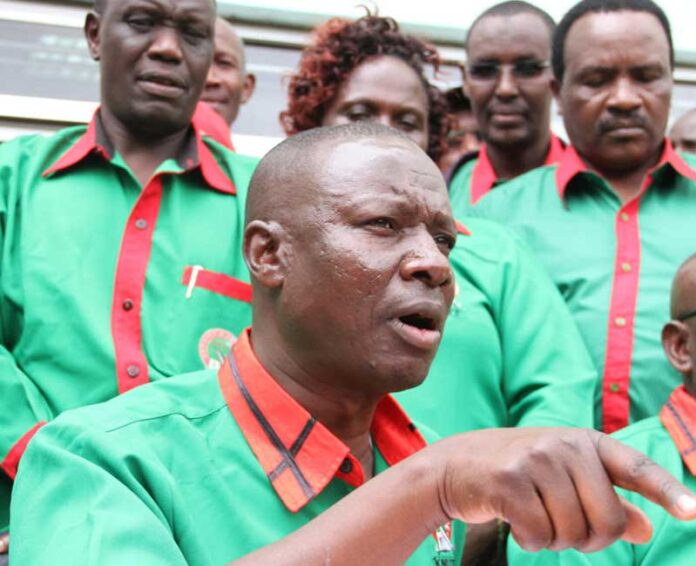Ruto’s Comments on Teacher Promotions Revoked
Teachers and other stakeholders in the education system have been divided over President William Ruto’s plan to promote 5,000 teachers directly and 36,000 indirectly.
Ruto recently revealed a strategy with the Teachers Service Commission (TSC) to inspire teachers across the nation’s various cadres.
“We have worked with the TSC to ensure that instructors who perform well would be promoted in order to motivate our teachers to provide their best effort. This year, we have budgeted for the direct promotion of 5,000 teachers and the indirect promotion of 36,000 teachers. A billion shillings that would go in that direction have been granted, said Ruto.
Some teachers were confused by these statements and requested explanations regarding the nature of the suggested promotion.
Hesbon Otieno, the Deputy Secretary General of the Kenya National Union of Teachers (KNUT), stated in an interview with TV47 that any promotion without a corresponding pay rise does not conform to the definition of promotion.
“Salary increases must be a part of every promotion. Others have claimed that a promotion entails being elevated from the position of class teacher to that of senior teacher or senior teacher to that of deputy headteacher while maintaining the same pay. That is not an advancement. It is being overworked and treated like a donkey, according to Otieno.
Otieno emphasised that the direct and indirect promotion criteria are largely a matter of human resources and collective bargaining when asked about them.
The KNUT SG emphasised that many teachers have remained in the same job grade for an extended period of time with regard to teacher promotions nationally.
“These stagnant teachers are primarily employed by the employment categories C1, C2, and C3. The Career Progression Guideline, which we believe needs a thorough revision because it is discriminatory, is the main cause of this problem, he claimed.
Otieno also stressed that since these issues are the responsibility of the Teachers Service Commission, the government has no direct involvement in the deployment of teachers.
The amount of money set aside for the education sector in the 2023–2024 budget has increased significantly, setting a record high point. Njuguna Ndung’u, the Treasury Cabinet Secretary, proposed allocating KSh 628.6 billion for the education sector in the budget.
KSh 12.5 billion of this planned budget is set out for free primary education. In addition, KSh 65.4 billion will enhance secondary school students’ access to free daytime insurance and National Health Insurance Fund (NHIF) coverage.
20,000 intern teachers will be hired with the help of KSh 4.8 billion, KSh 5 billion in exam fee waivers, and KSh 25.5 billion for junior secondary school capitation.




![Kenya’s Top 10 Marketable Degree Programs [List] Kenya's Top 10 Marketable Degree Programs [List]](https://opportunitiesforkenyans.co.ke/wp-content/uploads/2025/02/Kenyas-Top-10-Marketable-Degree-Programs-List-100x70.jpg)

